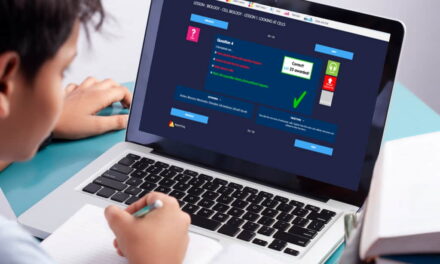Students with specific needs and requirements might find an alternative provision to be extremely effective and can be highly beneficial for a school. It is always good to keep government guidance in mind in identifying the right solution, but children’s safety should always be paramount.
EDClass had the pleasure of discussing with Mark Wrangles to highlight what an effective alternative provision can include and how students should be supported. Mark has over 20 years of experience in the education sector in schools and alternative provisions. He now works with trusts and alternative provisions providing quality assurance checks for education across northern England.
Mark said:
“From my experience, pupils want to succeed and want to be attending so they can have success in education. I think the best kind of provision and the best approach for students who are struggling to access mainstream is an individualised approach. We must work with these young people to understand their barriers to learning.
There are so many different styles of alternative provision from online through to forest schools and working with horses, all sorts of things. It’s about finding out which ones are going to work best with which students.”
There could be a variety of reasons why an alternative provision (AP) may be considered. Students could be facing social, emotional, or behavioural difficulties; medical or health issues; or have special educational needs (SEN). An online AP could potentially offer many advantages over traditional face-to-face provision, however, it is critical to integrate an environment that suits the specific needs of your students. As outlined in the School Inspection Handbook:
“Where pupils, including those in PRUs and other alternative providers, attend off-site alternative provision, inspectors will evaluate the extent to which these placements are safe and effective in promoting pupils’ progress.”
When integrating an effective alternative provision, is it important that this calm, orderly and ultimately safe environment is created so it is conducive to learning. The best possible outcomes and destinations for pupils need to be addressed.
Mark added:
“An online AP could fit in well with an individual approach and schools need to be prepared to meet the specific needs of students. It shouldn’t be a blanket approach where you send all struggling students to a certain provision, you need to treat each child individually and find the best solution for them.
For some, an online approach is going to be best. For others, it’s the equine AP that’s down the road because they’ve always wanted to work with animals. It is finding the things that are going to work with different students and having many tools in your armoury do that is important.”
What you need to consider
When considering which AP to choose there are many things to consider, but here are some main points you should contemplate:
- Identify the specific needs of students. Who are you hoping to serve with your AP? What are their needs and challenges? Once you have a good understanding of your target audience, you can start to develop a curriculum and learning materials that are tailored to their specific needs.
- Develop a curriculum. Your curriculum should be aligned with the national curriculum and should be tailored to the needs of your students. It is important to provide a variety of learning activities to keep students engaged.
- Provide ongoing support to students and families. Online AP can be a great option for students, but it can also be challenging. It is important to provide seamless communication with ongoing support to students and families to ensure that they are successful.
- The learning environment needs to be safe. Your students will need a safe and supportive learning environment in which to learn. This could be a dedicated learning space within a school or ensuring they have the resources at home and that they will be safeguarded.
- Provide support services. Your students may need additional support services, such as one-on-one tutoring, counselling, or social skills training. It is important to make sure that these services are available to your students.
Mark stated:
“There’s a real benefit to alternative provisions, but there needs to be some education of self-regulation, behaviour change and SEMH support and teaching. This is so pupils can learn how to cope with the challenges that they face in mainstream settings.
It’s also important to create positive relationships and show that you care from a staff point of view. It’s about understanding the barriers for different students and being able to adapt and support around that.”
Tracking the attainment and attendance levels of students and continuously assessing them is also crucial, however, it shouldn’t be the sole focus. Students need to fully understand the curriculum within the provision but their personal development and confidence also need to be supported.
Lessons we have learned from our experience
EDClass has been providing an effective online alternative provision for students making a huge impact on their lives. Within this time, there have been several types of students who have used the platform to great lengths. Some conditions should be integrated when setting up an online alternative provision:
- Safeguarding is paramount. An online alternative provision can have various safeguarding risks involved. Make sure to mitigate them by putting effective measures in place that deal with any risk immediately and to the highest standard.
- Address their needs. Placing students’ interests and specific needs at the centre of deliverability can escalate their learning to new heights. It is important to keep in line with guidance and identify clear starting points for students so they can focus on their studies properly.
- Have exceptional support. Having guided and well-supported high-quality teaching and learning incorporated with a broad and balanced curriculum will enhance students’ knowledge. Make sure to implement continuous assessments for students so that they can constantly test their knowledge and understanding.
- Track everything. It is vital that a student’s attendance and attainment levels are tracked and it is also important to monitor a student’s behaviour. To have a real impact on a student’s life you need to allow them to visibly see their areas for improvement and support them when necessary.
Mark also said:
“Regular positive interactions build good attendance and attainment. An online sphere, like EDClass, can help build positive relationships with the student and the teacher on the other end of the computer.”
If you like to learn about an effective online alternative provision then visit EDClass. You can call the team on 01909 568338, send an email to mail@edclass.com or if you would like a free online demonstration then book here.










